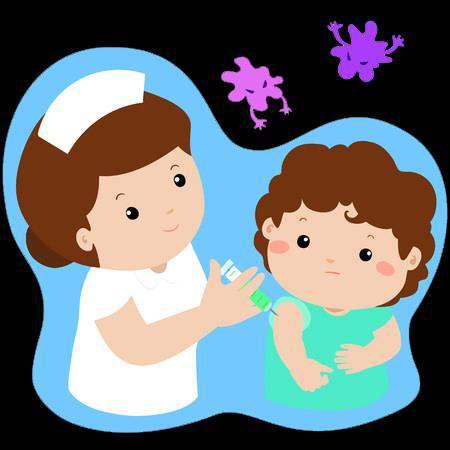
10 minute read
Support & Accessibility for students with reduced mobility in schools
from You-wA-H
by schoolindia
Webinar 18
Support & Accessibility for students with reduced mobility in schools
Advertisement
Some people might be at a higher risk of COVID19 or severe illness because of their underlying medical conditions. This is especially true for people who have limited mobility or who cannot avoid coming into close contact with others who may be infected, such as direct support providers. Children who have trouble understanding information or practicing preventive measures, such as hand washing and social distancing or Children who are heavily dependent on the power of touch to identify places. They inclusive infrastructure and extreme sanitary measures to protect themselves.
The webinar highlighted:
1. Situation of children with reduced mobility during COVID19 2. Ways to reduce greater risk of contracting COVID by people with reduced mobility 3. Role of parents and caretakers at home for their support 4. Post COVID expectations & Accessibility to schools 5. Guidelines by GoI for Comprehensive Disability Inclusion
Esteemed Panelists:
DR. SENTHIL N.S. KUMAR Chief Innovation Officer (Clinical & Technical) at The Association of People with Disability (APD), India
MS. S.K. ANANDHALAKSHMI Lecturer in the Department of Clinical Psychology at National Institute for Empowerment of Persons with Multiple Disabilities (NIEPMD), Chennai
MS. HIRAL DHOLAKIA Special Education Need Educator at Riverside School, Ahmedabad
KEY TAKEAWAYS

IMPROVING THE SITUATION FOR CHILDREN WITH SPECIAL NEEDS • We must understand the “E3” philosophy of Association of People with Disability (APD), which stands for enabling, equipping and empowering a person with disabilities. • A “Feel-Imagine-Do-Share Approach” to help students with disabilities must be followed to prepare teaching materials for children with disabilities. • An initiative called “Fresh Air Fresh Mind” could be practiced wherein schools could try to get about 20-30 children together once a month to allow children with special needs to interact with other students from schools and NGOs. • Disability is not an individual issue it’s a social issue. In order to create an impact, we need to bring an attitudinal change and an environmental change. • A parent capacity building program is also created to make parents special educators, here; whatever is taught to the students is also taught to the parents. • We need to educate parents and siblings primarily because all of us are confined to a space. This will create awareness and contribute to education and therapy needs of the children.

SUPPORTING PARENTS IN THESE TOUGH TIMES • The mental health of parents is getting affected significantly, it is deteriorating. • There is a need to equip parents to be able to handle the modalities of interventions, for this we need to explore what the parents are comfortable with and what resources are available. • Professionals, pass their messages through parents. This makes empowering and educating parents essential.
KEY TAKEAWAYS
UNDERSTANDING THE SITUATION OF PERSONS WITH PHYSICAL DISABILITIES AND SPECIAL NEEDS • Children who are comfortable with gadget can also have video calls with friends and relatives, here it must be ensured that they do not spend too much time with gadgets. • There are two things when we discuss about locomotive disability, we need to think about the individual’s adaptability and the person’s ability. For example, instead of tying a mask or putting over the ears, we try using velcro to make it easier for certain persons with disabilities. We can also provide them with certain devices that can help them wear the maskThus, only two things are possible, either modifying the mask or build an adaptive device.
THE NEP AND RIGHT OF PERSONS WITH DISABILITY ACT • If the NEP is implemented the way it has been drafted, then it will be simpler for students with disabilities. • The NEP 2020 is comprehensive and aligns with the RPwD Act which was announced in 2016.
SENSITIZING THE COMMUNITY MEMBERS • However, educational reform is not the complete solution; we need to change the mindset of people. • Providing experiences to students at an early age is a way to raise awareness among students. • At APD, a Disability Immersion Program was started to immerse abled bodies to understand what disability is all about and make them empathetically understand the troubles of these individuals through tasks. • Sign language must not only be taught to those who need it to communicate but to all community members.

EFFECTS OF COVID ON THE CHILDREN WITH SPECIAL NEEDS • There have been a lot of changes in behaviour of children during the lockdown, probably because of lack of routine and goals. • Deterioration in the achieved skills of the children has been witnessed because of which the family members are distressed. • Online services and modalities have been made available to families. This has equipped them to take care of themselves and educate children with disabilities.
KEY TAKEAWAYS
ROLE OF PARENTS AND CARETAKERS • Schools can cut the duration of the online classes, impart lessons through videos specially made by teachers, seek parental and sibling help to decode the lessons for students and give them ample time to be able to finish their homework. • Caretakers must engage them in activities, should teach them the basic social skills which they might have already learnt. • Unless schools come up with a policy to create an inclusive learning environment, it won’t be possible to follow the act entirely. • Schools must change the curriculum at their own level. • Schools and parents can themselves create cost effective materials to impart knowledge to children.

SURVEY FINDINGS
Over 37% schools/offices do not have differently abled friendly facilities. 87.4% of the audience said that they are aware of the safety measures that can be taken to minimise the psychological impact the lockdown has had on this population of children. 88.1% of the audience agreed that the role of caretakers had increased during the lockdown. 66.2% of the audience felt that children with special needs had missed out on their routine checkups during the lockdown. To inculcate the habit of mask wearing, 22.5% people feel that caretakers must educate children with special needs about its importance, while 26.5% feel that the habit must be gradually built and over 50% individuals feel that primary caretakers must lead by example. Close to 14% of the audience believes that lessons should be conducted for all the students in a similar manner, while 63.6% opines the use of visual aids would help increase the attention span of children with special needs during online lessons and 22.5% feel that the presence of a caretaker would be a better solution for it.

Webinar 19
School Vaccination challenges and readiness
Vaccines save millions of lives each year. They train and prepare the body’s natural defenses (the immune system) to recognize and fight off the viruses and bacteria, preventing illness. Immunization services are a critical component of the GoI’s child survival strategy. Over the past 20 years, there has been a decline in the reported number of cases of VPDs. However, there has been an increase in the number of reported measles, diphtheria and pertussis cases. The world is in the midst of a COVID-19 pandemic. Several countries have come together in the race to find a vaccine, with a number of these in the human trial phase.
The following issues were discussed during the webinar:
1. Need for vaccinations for adolescents’ healthy growth 2. Impact on school vaccination programme in times of COVID 3. Preparation & guidelines for immunization in schools during & after Covid 4. Role of NGO's to support School immunization Programme & COVID Vaccination readiness
Esteemed Panelists:
DR. J.P. KAPOOR DSr. Public Health Specialist(CMO) at Lal Bahadur Shashtri Hospital, Ex-Director, Directorate of Family welfare, Delhi DR. RAAVEE TRIPATHI -

DR. NAVEEN SETHI M.B.B.S, M.P.H, Chief of Party-Programme Implementation, Plan India Principal at Sumitra Modern School, Sitapur, Uttar Pradesh
DR ANISH SINHA Associate Professor, Indian Institute of Public Health, Gandhinagar
KEY TAKEAWAYS

NEED FOR VACCINATION AND IMMUNISATION • Several vaccines and immunisation injections are given to children to reduce infant mortality rate and prevent serious health issues in adulthood. Due to lack of resources and awareness, many children used to miss these immunisation shots. • Routine immunisation provides chance for preventive services and health counseling. • Children with immunodeficiency, chronic diseases, immunosuppressive or radiation therapy, and other health conditions are at a higher risk and therefore require routine immunisation. • We feel that we have lost children to COVID, but in reality we have lost them because of lack of immunisation.

RAISING AWARENESS AROUND VACCINATION • For polio vaccination, school students themselves participated in polio rallies to raise awareness among the community members and motivate individuals to get their children to polio booths. Students were called the “Polio Sena”. • Mission Indradhanush aims at preparing sessions for children who have missed vaccination or have been missed out of the system.
VACCINATION AND IMMUNISATION PROGRAMS • The government had launched various policies to prevent disease through vaccination
KEY TAKEAWAYS
and immunisation, we can combine all these programs and policies for better outreach. We need build an effective mechanism for vaccine and cover the booster doses. At 11-12 years adolescents need to get: 1. Tdap, HPV, and Annual influenza vaccine shots. HPV vaccine is very important for girls. Adults can also get Annual Infleunza vaccine, especially during COVID times. 2. MMR, Hepatitis B, Typhoid, Varicella and Hepatitis A. 3. Pneumococcal vaccine is also very important, it is for our respiratory system. 4. Meningococcal, JE, Cholera, Rabies and Yellow fever are important vaccines for adolescents. When the COVID vaccine rolls out, relying only on the medical facilities to get vaccinated would not be sufficient for a country like India we schools to come forward as vaccination centers.
ROLE OF CARETAKERS • Development of trust by families in schools and vaccines is of key importance. • Awareness must be raised for all vaccines so that children do not miss out on them and hamper their growth and development.

HOW SCHOOLS CAN EASE THE IMMUNISATION PROCESS • Schools have been recognised as the most efficacious platform for post infancy immunisation and are also the source of adolescent health education. • Integrating immunisation with school health program ensures universal coverage of both the programs. • Schools can have a mechanism to find out children who haven’t completed their vaccination and must motivate them during parent-teacher meetings to do so. • Few teachers can also be specially trained to provide medical assistance and communicate with parents in case a child is not vaccinated according to his/her own age. • Schools must also stay in contact with the local health machinery. • Schools can also celebrate a monthly immunisation day where students and parents can closely interact with healthcare professionals.
CHALLENGES • Not all students go to schools; we also need to cover anganwadi centers.
KEY TAKEAWAYS
There are several demand and supply challenges. Out of these, the supply challenges have been met through rigorous increase in infrastructure and investment. While the demand side challenges still persist due to lack of awareness. Myths and misconceptions, economic barriers, religion etc. act as barriers to health. Better infrastructure like storage refrigerators, trained staff, emergency tray and provision to lay down the students are needed for successful vaccination drives.

SURVEY FINDINGS
58.9% population said their schools conducted vaccination or immunisation programmes, while 27.3% did not and close to 14% were not sure of it. 93.3% individuals agreed that vaccination is important for adolescents to prevent diseases in adulthood. 67.3% of the audience feels that the government should incentivise immunisation programmes for adolescents. 67.4% opines that immunisation cards should be made mandatory for college admissions. Over 41% of the population did not have any information regarding the vaccines given to children and adolescents. Almost 91% of the population opines that integrating vaccination programmes with school-based health interventions would be a good strategy to ensure immunisation. 43.1% parents would be comfortable getting their children vaccinated in schools while 23.2% aren’t. More than 90% of the audiences thinks that information about vaccination and immunisation should be a part of school curriculum.



